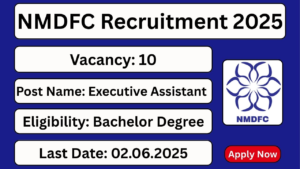Managing Job Pressure: Strategies for a Healthier Work-Life Balance
Job pressure, a ubiquitous aspect of modern work life, can significantly impact one’s physical and mental well-being. While it’s impossible to eliminate stress entirely, effective strategies can help individuals manage it more effectively. We will explore various techniques to cope with job pressure and maintain a healthy work-life balance.

Understanding Job Pressure
Job pressure, often stemming from demanding workloads, tight deadlines, or interpersonal conflicts, can manifest in various ways. Common symptoms include physical fatigue, emotional exhaustion, irritability, and difficulty concentrating. Recognizing the signs of job pressure is crucial for taking proactive steps to address it.
Effective Coping Strategies
- Time Management: Efficient time management is fundamental to reducing job pressure. Prioritize tasks, set realistic deadlines, and avoid procrastination. Techniques like the Pomodoro Technique can help break down tasks into manageable chunks and improve focus.
- Effective Communication: Open and honest communication with colleagues, supervisors, and subordinates can prevent misunderstandings and reduce stress. Clearly express your needs, concerns, and workload to avoid feeling overwhelmed.
- Work-Life Balance: Establishing a healthy work-life balance is essential. Set boundaries between work and personal time, and allocate time for activities you enjoy. Engaging in hobbies, spending time with loved ones, and getting sufficient rest can help alleviate stress.
- Stress Management Techniques: Incorporate stress management techniques into your daily routine. Mindfulness meditation, deep breathing exercises, and yoga can help calm the mind and reduce anxiety.
- Seek Support: Don’t hesitate to seek support from friends, family, or a mental health professional. Talking about your experiences can provide valuable insights and emotional relief.
- Healthy Lifestyle: A healthy lifestyle is crucial for managing stress. Prioritize regular exercise, a balanced diet, and adequate sleep. These habits can improve your overall well-being and resilience.
- Set Realistic Expectations: Avoid setting unrealistic expectations for yourself. Understand that perfection is unattainable, and strive for progress rather than perfection.
- Learn to Delegate: If possible, delegate tasks to others to reduce your workload. This can help prevent burnout and improve efficiency.
- Positive Mindset: Cultivate a positive mindset by focusing on your achievements and strengths. Practice gratitude and avoid dwelling on negative thoughts.
Managing job pressure is a challenge faced by many individuals. By implementing effective coping strategies, such as time management, communication, work-life balance, and stress management techniques, individuals can significantly reduce the negative impact of stress on their lives. Remember, seeking support and prioritizing self-care are essential for maintaining a healthy work-life balance and overall well-being.










